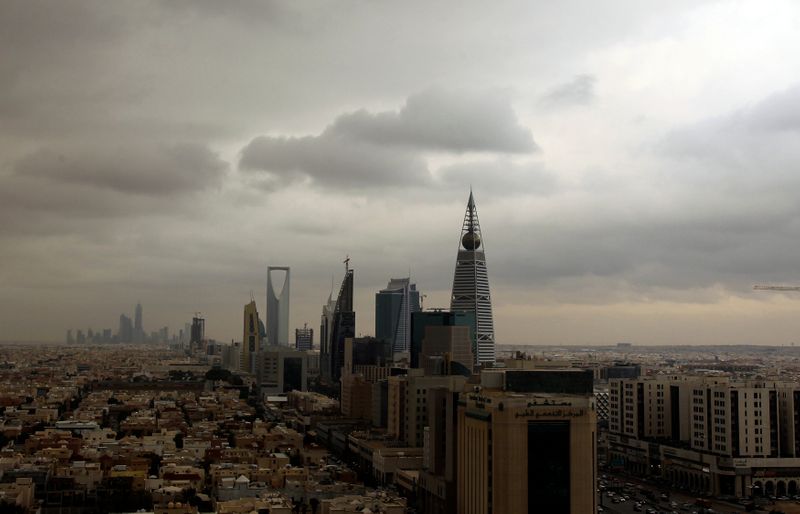(Refiles to correct day of week in par 10)
By Davide Barbuscia and Saeed Azhar
RIYADH (Reuters) -Saudi Arabia said on Wednesday it had licensed 44 international companies to set up regional headquarters in the capital Riyadh under the kingdom's push to become a regional commercial hub and vie for foreign capital and talent.
Among the 44 companies are multinationals in sectors including technology, food and beverages, consulting and construction including Unilever (NYSE:UL), Baker Hughes and Siemens, a press release said.
The world's top oil exporter and largest Arab economy in February said it would give foreign firms until the end of 2023 to set up headquarters in the country or risk losing out on government contracts.
The move, part of efforts by Crown Prince Mohammed bin Salman to wean the economy off oil by creating new industries that also generate jobs for Saudis, has put the kingdom in competition with regional business hub the United Arab Emirates.
The new headquarter establishments would add 67 billion riyals ($18 billion) to the economy and provide around 30,000 job opportunities by 2030, the president of the Royal Commission for Riyadh City, Fahd al-Rasheed, said in a statement.
Rasheed told Reuters he expects the 44 firms to move to Riyadh within a year, adding that some had already done so. He said the target was for 480 companies by 2030.
The kingdom earlier this year said 24 companies had signed agreements to establish main regional offices - including PepsiCo (NASDAQ:PEP), Schlumberger (NYSE:SLB), Deloitte, PwC and Bechtel - rather than oversee operations remotely from the UAE's Dubai emirate.
European law firm DWF Group said on Wednesday that Riyadh would become its regional headquarters for business services.
Rasheed has said the move is not aimed at dismantling corporate operations elsewhere.
"We are simply saying - you need to have your regional headquarter here because this is not simply a contract economy that you come in and come out. We want to see you with us for the long term," he told Reuters on Wednesday.
UNCERTAINTIES LINGER
Rasheed defined regional headquarters as housing all major decision-making functions, but it was unclear how all firms themselves are defining Saudi headquarters.
Some people in the business community say companies are unlikely to shut operations in the UAE and may simply shift some operations to Saudi.
Danish wind turbine maker Vestas, not among the list of 44 firms, told Reuters in a statement that it was moving its Middle East sales headquarters from Dubai to Riyadh.
Saudi Arabia has launched economic and social reforms aimed at making the kingdom an easier place to live and work in and has cut the red tape that long deterred companies.

However some attendees at the FII investment summit where Wednesday's announcement was made, and who were speaking on condition of anonymity due to sensitivities, cited continued uncertainty around regulations and taxes, as well as high operational costs and lack of a skilled local workforce.
One example was the kingdom's sudden move in May 2020 to triple its value-added tax rate. Issues around negotiating electricity tariffs would make it much harder for manufacturers to relocate than financial companies, some said.